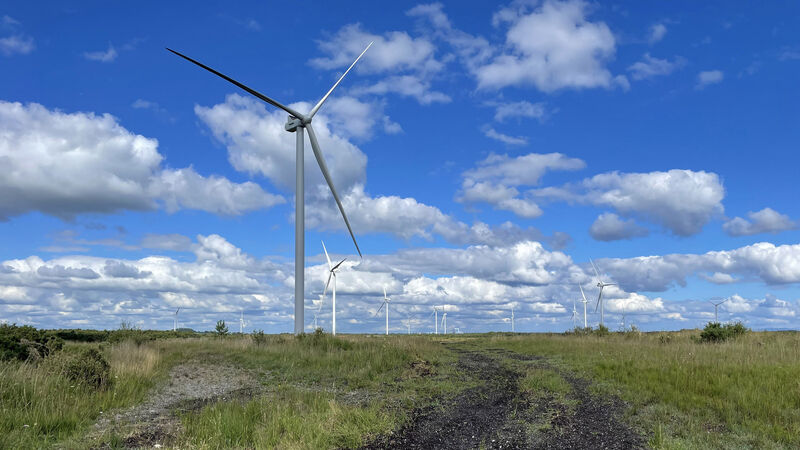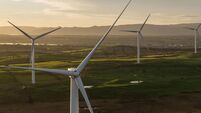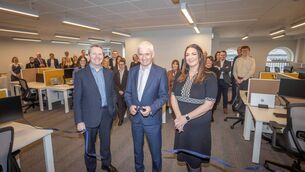Onshore wind is the ‘low-hanging fruit’ for renewable investment

Wind turbines on the Bog of Allen in Co Offaly. Onshore wind in Ireland is probably still the cheapest way of delivering renewable generation on the island, says Eoin Cassidy of law firm Mason Hayes and Curran. Photo: Eamonn Farrell/RollingNews.ie
Interest rate reductions, cooling inflation and government commitment to renewable energy projects has led to increased appetite among investors to enter the Irish market recently despite chronic challenges that continue to hinder progress, according to an expert.
Eoin Cassidy, Mason Hayes and Curran partner in its construction team and energy law specialist, said an improved economic environment will improve the debt market for Irish renewable assets in the short term, which he suggested will assist the smaller developers that have been previously priced out and haven't been able to move forward on projects.








